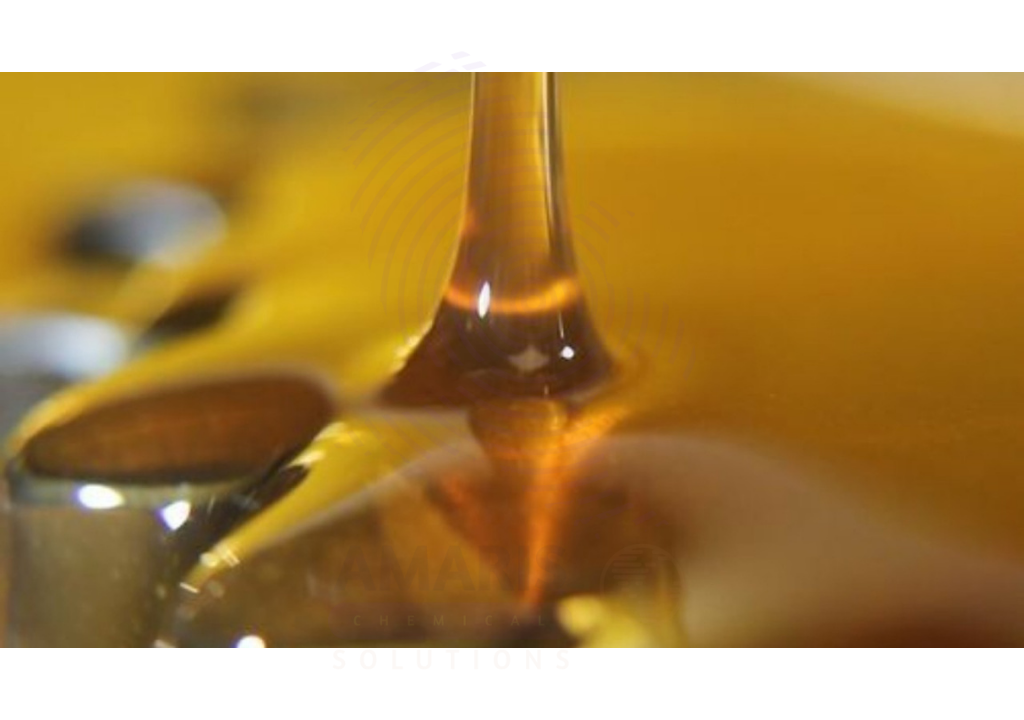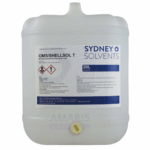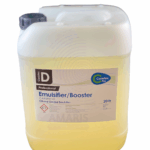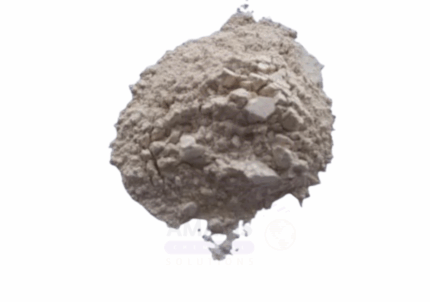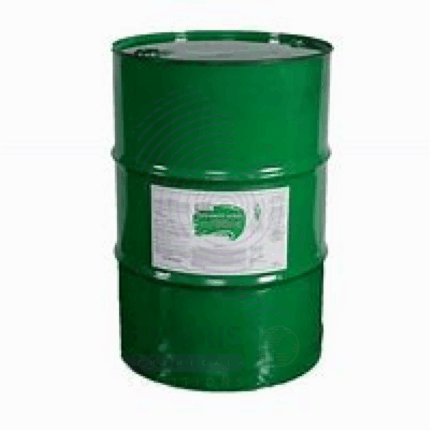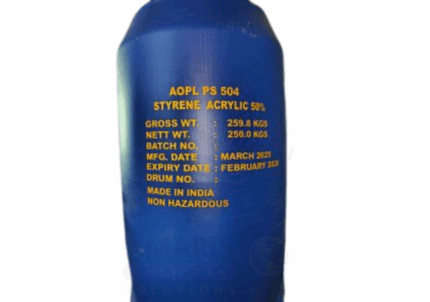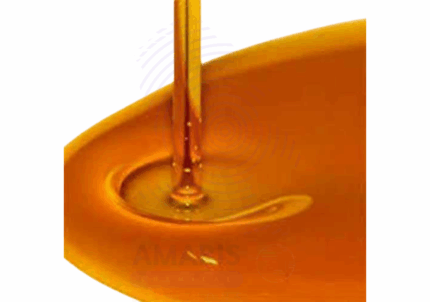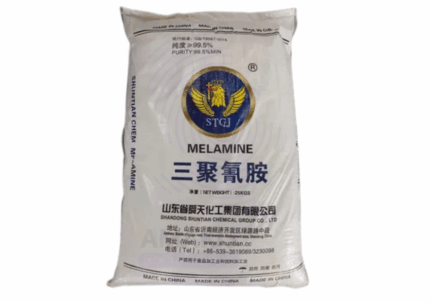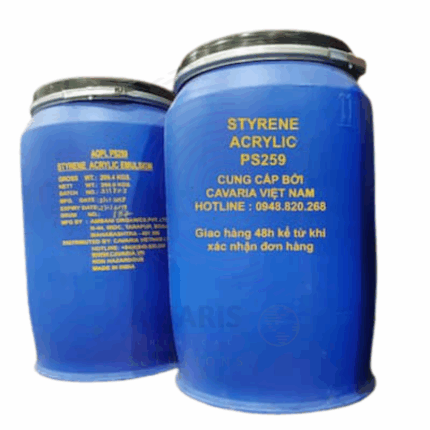Short Oil Fast Drying (16/50) (SDA)
Whatsapp Order
Short Oil Fast Drying (16/50) (SDA) Stand & Detail Alkyd (SDA) is a specially formulated alkyd resin designed for rapid drying and excellent film formation in coatings. It contains approximately 16% oil length, offering a balance between hardness and flexibility, and 50% solids content, which aids in build and coverage. This resin is widely used in industrial and decorative paints where quick drying and good adhesion are critical. Its fast curing properties make it ideal for applications requiring reduced downtime and enhanced productivity.
Description
Table of Contents
Toggle
Short Oil Fast Drying (16/50) (SDA)
Primary Uses
- Industrial and Decorative Coatings
- Used in fast-drying enamels, primers, and topcoats for metal and wood surfaces.
- Provides good adhesion and hardness with moderate flexibility, suitable for furniture and machinery coatings.
- Employed in automotive refinishing paints for quick recoat and durable finish.
- Wood Coatings
- Used in wood varnishes and lacquers where rapid drying and good clarity are needed.
- Enhances surface hardness and resistance to abrasion and chemicals.
- Printing Inks
- Utilized in alkyd-based inks requiring fast drying on various substrates.
Secondary Uses
- Adhesives
- Incorporated in solvent-based adhesive formulations for improved tack and film formation.
- Art Supplies
- Used in artist paints and protective coatings due to quick drying and durable finish.
- Marine Coatings
- Applied in specialized fast-drying coatings for maintenance and repair on boats and ships.
KEY PRODUCT FEATURES
1. Basic Identification Attributes
- Chemical Name (IUPAC): Alkyd resin (short oil)
- Common/Trade Name: Short Oil Fast Drying (16/50) SDA
- CAS Number: Mixture (varies by formulation)
- HS Code: 3907.30 (Alkyd resins)
- Synonyms: Fast drying short oil alkyd, SDA resin
2. Physical & Chemical Properties
- Physical State: Viscous liquid or paste
- Color & Odor: Amber to brown; characteristic mild solvent odor
- Solids Content: Approx. 50%
- Oil Length: ~16%
- Density: Approx. 1.0 – 1.2 g/cm³
- Solubility: Soluble in organic solvents (e.g., mineral spirits, xylene)
3. Safety & Hazard Attributes
- GHS Classification: Flammable liquid (Category 3); may cause skin and eye irritation
- Toxicity: Moderate; avoid prolonged exposure and inhalation
- Exposure Limits: Follow safety data sheet (SDS) recommendations
4. Storage & Handling Attributes
- Storage Conditions: Store in tightly closed containers in a cool, dry, well-ventilated area away from ignition sources
- Container Type: Drums, pails, or bulk containers
- Shelf Life: Typically 6–12 months under proper storage
- Handling Precautions: Use personal protective equipment; avoid inhalation of vapors; prevent static discharge
5. Regulatory & Compliance Attributes
- Complies with industrial coating regulations and VOC limits applicable to solvent-based alkyd resins (e.g., EPA, REACH)
- Meets safety and handling standards per GHS classification
6. Environmental & Health Impact
- Biodegradability: Moderate, dependent on formulation components
- Ecotoxicity: May be harmful to aquatic life; avoid environmental release
- Bioaccumulation: Not significant
SAFETY HANDLING PRECAUTIONS
Safety Handling Precautions
- PPE Required: Gloves, goggles, and protective clothing recommended
- Handling Guidelines: Use in well-ventilated areas; avoid skin and eye contact; prevent ignition sources
- Storage Measures: Keep containers tightly closed and stored in a dry environment
First Aid Measures
- Inhalation: Move to fresh air; seek medical attention if symptoms occur
- Skin Contact: Wash thoroughly with soap and water; seek medical advice if irritation persists
- Eye Contact: Rinse immediately with plenty of water for at least 15 minutes; obtain medical attention if irritation continues
- Ingestion: Do not induce vomiting; seek immediate medical attention
Firefighting Measures
- Fire Hazards: Flammable liquid and vapor; may release hazardous gases on combustion
- Extinguishing Media: Foam, dry chemical, CO₂, or water spray
- Special Precautions: Wear full protective gear and self-contained breathing apparatus
- Hazardous Combustion Products: Carbon oxides, hydrocarbons, and other toxic fumes
Related products
Acrytan SN
Clear Emulsion
Clear Emulsion is a transparent or translucent mixture of two immiscible liquids—typically oil and water—stabilized by emulsifying agents to form a stable, homogenous system. This product is widely used in cosmetics and personal care, pharmaceuticals, and specialty industrial applications due to its lightweight texture, ease of absorption, and aesthetic appeal. Clear emulsions offer a visually appealing, non-greasy feel with the advantages of both oil and water phases, delivering moisturizing, protective, and active ingredient-carrying benefits. Their clarity distinguishes them from traditional creamy emulsions, making them popular in modern skincare and cosmetic formulations.
Eagle Styrene Acrylic 72/ 50
Eagle Styrene Acrylic 72/ 50 is a co-polymer emulsion consisting of styrene and acrylic monomers, offered at 50% active solids concentration in water. It appears as a milky-white, low-viscosity liquid with a mild odor. This polymer emulsion combines excellent film-forming properties, adhesion, and mechanical strength, making it widely used in coatings, adhesives, sealants, and functional binders across multiple industries.
Lacitex
Lacitex is a high-quality natural latex concentrate derived from Hevea brasiliensis (rubber tree) latex. It is a milky, white colloidal suspension primarily used in the manufacture of latex-based products such as gloves, adhesives, coatings, and foam rubber. Lacitex offers excellent film-forming properties, elasticity, and tensile strength. It provides superior binding, water resistance, and flexibility in finished products, making it widely valued in various industrial and manufacturing applications.
Linseed Oil
$ 17.15
Linseed Oil, also known as flaxseed oil, is derived from the seeds of the flax plant (Linum usitatissimum). It is a pale yellow to amber oil with a mild, nutty aroma. Rich in omega-3 fatty acids and antioxidants, Linseed Oil is widely used in cosmetics, personal care, industrial applications, and traditional medicine. It is valued for its moisturizing, anti-inflammatory, and skin conditioning properties, as well as its drying qualities in paints and varnishes.
Long Oil
Long Oil refers to oils with a high content of unsaturated fatty acids, particularly linoleic and linolenic acids, commonly derived from drying oils such as linseed, soybean, or safflower oil. These oils have extended drying times and are used in various industrial applications where slow curing and flexible film formation are desired. Long oil is a key component in producing long oil alkyd resins, which are widely used in coatings, paints, varnishes, and printing inks due to their excellent adhesion, flexibility, and durability.
Setamine ( Melamine Resin)
Setamine (Melamine Resin) is a thermosetting polymer widely used for its excellent hardness, chemical resistance, and thermal stability. It is produced by the reaction of melamine with formaldehyde and is commonly utilized in coatings, laminates, adhesives, and molding compounds. Setamine offers superior durability, scratch resistance, and moisture resistance, making it ideal for high-performance surface finishes and industrial applications.
Styrene Acrylic
Styrene Acrylic is a copolymer emulsion combining styrene and acrylic monomers, widely used as a versatile binder in coatings, adhesives, and construction materials. It offers excellent film-forming properties, adhesion, water resistance, and durability. This product enhances the performance and longevity of paints, sealants, textiles, and paper coatings, with flexibility for both indoor and outdoor applications. Styrene Acrylic emulsions are designed to meet stringent industrial and environmental standards.


 Preservatives(food)
Preservatives(food) Flavor Enhancers
Flavor Enhancers Acidulants
Acidulants Sweeteners
Sweeteners Antioxidants
Antioxidants Colorants(food)
Colorants(food) Nutraceutical Ingredients (food)
Nutraceutical Ingredients (food) Nutrient Supplements
Nutrient Supplements Emulsifiers
Emulsifiers
 Collectors
Collectors Dust Suppressants
Dust Suppressants Explosives and Blasting Agents
Explosives and Blasting Agents Flocculants and Coagulants
Flocculants and Coagulants Frothers
Frothers Leaching Agents
Leaching Agents pH Modifiers
pH Modifiers Precious Metal Extraction Agents
Precious Metal Extraction Agents
 Antioxidants(plastic)
Antioxidants(plastic) Colorants (Pigments, Dyes)
Colorants (Pigments, Dyes) Fillers and Reinforcements
Fillers and Reinforcements Flame Retardants
Flame Retardants Monomers
Monomers Plasticizers
Plasticizers Polymerization Initiators
Polymerization Initiators Stabilizers (UV, Heat)
Stabilizers (UV, Heat)
 Antifoaming Agents
Antifoaming Agents Chelating Agents
Chelating Agents Coagulants and Flocculants
Coagulants and Flocculants Corrosion Inhibitors
Corrosion Inhibitors Disinfectants and Biocides
Disinfectants and Biocides Oxidizing Agents
Oxidizing Agents pH Adjusters
pH Adjusters Scale Inhibitors( water)
Scale Inhibitors( water)
 Antioxidants(cosmetic)
Antioxidants(cosmetic) Emollients
Emollients Fragrances and Essential Oils
Fragrances and Essential Oils Humectants
Humectants Preservatives
Preservatives Surfactants(cosmetic)
Surfactants(cosmetic) Thickeners
Thickeners UV Filters
UV Filters
 Fertilizers
Fertilizers Soil Conditioners
Soil Conditioners Plant Growth Regulators
Plant Growth Regulators Animal Feed Additives
Animal Feed Additives Biostimulants
Biostimulants Pesticides (Herbicides, Insecticides, Fungicides)
Pesticides (Herbicides, Insecticides, Fungicides)
 Active Pharmaceutical Ingredients (APIs)
Active Pharmaceutical Ingredients (APIs) Excipients
Excipients Solvents(pharmaceutical)
Solvents(pharmaceutical) Antibiotics
Antibiotics Antiseptics and Disinfectants
Antiseptics and Disinfectants Vaccine Adjuvants
Vaccine Adjuvants Nutraceutical Ingredients (pharmaceutical)
Nutraceutical Ingredients (pharmaceutical) Analgesics & Antipyretics
Analgesics & Antipyretics
 Analytical Reagents
Analytical Reagents Solvents(lab)
Solvents(lab) Chromatography Chemicals
Chromatography Chemicals Spectroscopy Reagents
Spectroscopy Reagents microbiology-and-cell-culture-reagents
microbiology-and-cell-culture-reagents Molecular Biology Reagents
Molecular Biology Reagents Biochemical Reagents
Biochemical Reagents Inorganic and Organic Standards
Inorganic and Organic Standards Laboratory Safety Chemicals
Laboratory Safety Chemicals Specialty Laboratory Chemicals(Special Laboratory Equipment)
Specialty Laboratory Chemicals(Special Laboratory Equipment)
 Demulsifiers
Demulsifiers Hydraulic Fracturing Fluids
Hydraulic Fracturing Fluids Scale Inhibitors(oil)
Scale Inhibitors(oil) Surfactants(oil)
Surfactants(oil) Drilling Fluids
Drilling Fluids
 Dyes and Pigments
Dyes and Pigments Bleaching Agents
Bleaching Agents Softening Agents
Softening Agents Finishing Agents
Finishing Agents Antistatic Agents
Antistatic Agents
 Admixtures
Admixtures Waterproofing Agents
Waterproofing Agents Sealants and Adhesives
Sealants and Adhesives Curing Compounds
Curing Compounds Concrete Repair Chemicals
Concrete Repair Chemicals Anti-Corrosion Coatings
Anti-Corrosion Coatings
 Surfactants(cleaning)
Surfactants(cleaning) Builders
Builders Enzymes
Enzymes Solvents (Cleaning)
Solvents (Cleaning) Fragrances
Fragrances
 Electronic Chemicals
Electronic Chemicals Catalysts
Catalysts Lubricants
Lubricants Photographic Chemicals
Photographic Chemicals Refrigerants
Refrigerants Automotive chemicals
Automotive chemicals Pyrotechnic Chemicals
Pyrotechnic Chemicals
 Biodegradable Surfactants
Biodegradable Surfactants Bio-based Solvents
Bio-based Solvents Renewable Polymers
Renewable Polymers Carbon Capture Chemicals
Carbon Capture Chemicals Wastewater Treatment Chemicals
Wastewater Treatment Chemicals
 Pigments
Pigments Solvents(paint)
Solvents(paint) Specialty Coatings
Specialty Coatings Binders/Resins
Binders/Resins Additives
Additives Driers
Driers Anti-Corrosion Agents
Anti-Corrosion Agents Functional Coatings
Functional Coatings Application-Specific Coatings
Application-Specific Coatings
 Fresh Herbs
Fresh Herbs Ground Spices
Ground Spices Whole Spices
Whole Spices Spice Blends
Spice Blends Dried Herbs
Dried Herbs
 Leavening Agents
Leavening Agents Dough Conditioners
Dough Conditioners Flour Treatments
Flour Treatments Fat Replacers
Fat Replacers Decoratives
Decoratives Preservatives(baking)
Preservatives(baking)
 Plasticizers & Softeners
Plasticizers & Softeners Reinforcing Agents
Reinforcing Agents Adhesion Promoters
Adhesion Promoters Vulcanizing Agents
Vulcanizing Agents Antidegradants
Antidegradants Blowing Agents
Blowing Agents Fillers & Extenders
Fillers & Extenders Accelerators & Retarders
Accelerators & Retarders